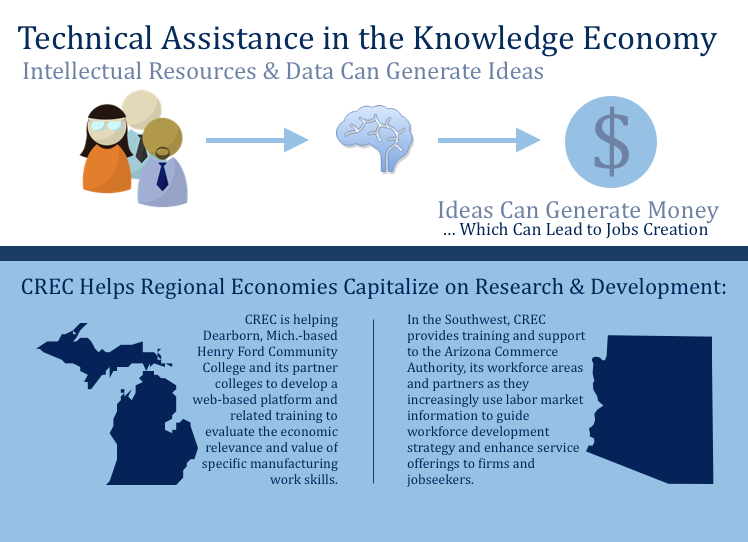
Building On the Knowledge Economy
The Center for Regional Economic Competitiveness (CREC) uses information and data to create resources and toolkits so that state and national policymakers can evaluate, shape, and implement effective and state- and region-specific programs that promote economic development efforts.
Many of our technical-assistance efforts are aimed at: federal agencies, regional and state offices, private nonprofits, educational institutions, and sub-state regional coalitions.
While our primary area of policy expertise relates to economic development, workforce development, and education, our network extends beyond these policy areas through the Association of Public Data Users (APDU) into a variety of fields ranging from health care, criminal justice and housing, and demographics to transportation.
Related Projects
New York State (NYS) Tax Incentives
New York State Department of Taxation and Finance
Start Date: Jan 2023 — End Date: Jun 2023
Inventory of Public and Private Sources of Education and Workforce Data
Lumina Foundation
Start Date: Mar 2023 — End Date: May 2023
Increasing Public Labor Market Information Capacity to Provide Sub-State and Skills Projections Data
Lumina Foundation
Start Date: Dec 2021 — End Date: Mar 2023
Counting U.S. Secondary and Postsecondary Credentials 2022-23
Credential Engine
Start Date: Jan 2022 — End Date: Mar 2023
Evaluation (GMKPI) Framework for NCBiotech and Accelerate NC
North Carolina Biotechnology Center
Start Date: Nov 2022 — End Date: Feb 2023

